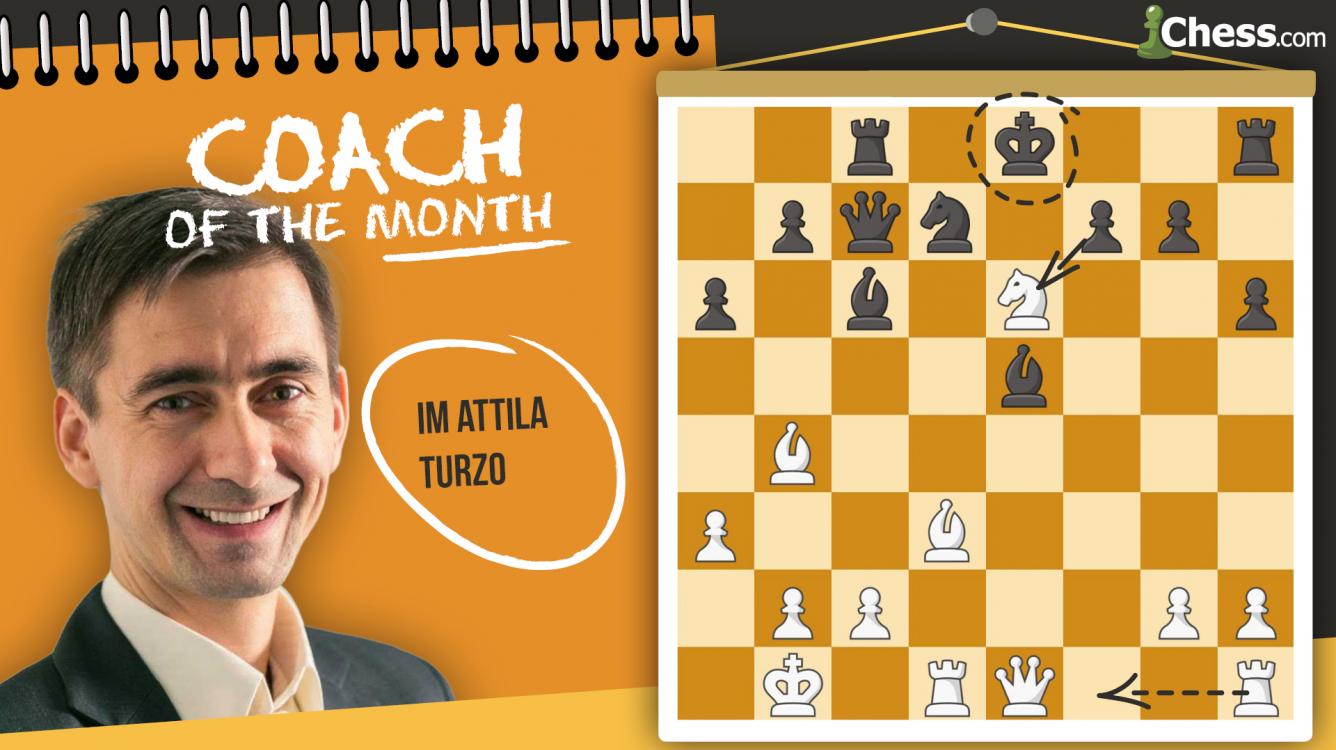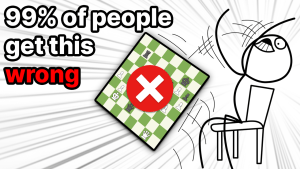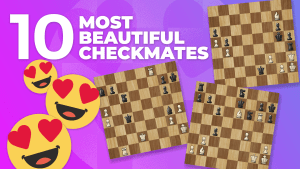
Coach Of The Month: IM Attila Turzo
IM Attila Turzo is a familiar face to students on Chess.com.
His streams at Twitch.tv/attilaturzo have a strong emphasis on instruction, breaking down lots of important points during and after his games, many of which he plays against viewers. Active members are also likely to have seen his blog series "The Road To Grandmaster," where he recounts his many tournament games against strong players and discusses his efforts to improve to attain the grandmaster title.
Perhaps no other coach or player on Chess.com does more chess, be it competing, casual play, problems, Twitch, YouTube, blogging, etc. than IM Turzo!

Readers seeking private instruction can contact IM Turzo via his Chess.com profile (@attilaturzo) and can find numerous skilled coaches at Chess.com/coaches.
Interview with IM Attila Turzo:
Chess.com: At what age were you introduced to chess, and who introduced you?
Attila Turzo: My stepfather introduced me at the age of six. Later my grandfather played with me nearly every weekend until around age 10-11 when I started to win.
What is your first vivid memory from chess?
Playing five-minutes games in the chess club. The first hour was always a lecture. Then in the second hour of the coaching, we played blitz games. Most of the games were Sicilian Defenses, because we played 1.e4 with White and the Sicilian with Black.
Which coaches were helpful in your chess career, and what was the most useful knowledge they imparted to you?
My first coach was Imre Pal, a national-master-level player. In every lecture, he showed us the importance of activity and initiative. He taught me for around five years; then international master Lajos Abel, who was a strong endgame player, taught me. International master Tamas Erdelyi introduced me to the Benko Gambit, the Reti and the English openings. Grandmaster and Olympic champion Istvan Csom showed me the Nimzo-Indian defense.
I got from 2200 to 2415 in three years with the coaching of international master Tibor Karolyi. I am forever grateful to all of them and also to others who played and analyzed with me.
Which game do you consider your masterpiece?
I played this game in the under-18 Hungarian Junior Championship. The tourney did not go so well, but in this game I played a beautiful Sicilian attacking game:
How would you describe your approach to chess coaching?
From age six when I started to play chess until age 18 when I became an international master, I always worked with coaches. Being coached was the natural state for me.
At age 18, I moved to another city, and I was asked to help a young talent and later I was asked to coach more and more students. First, I taught children then I started to teach adults. I was always happy to watch my students grow as chess players and people.
My goal as a chess coach is to help my students create and reach their goals. I help them to find their weaknesses and strengths and create a study plan to improve.
What do you consider your responsibility as a coach and which responsibilities fall on your student?
My responsibility is to motivate them to give their best when they study and when they play. I give them homework depending on their needs. I am always researching ways to help my students and improve my coaching skills.
Students need to put several hours of study and playing time in to practice what we study in the coaching sessions. The coach shows the way for the student, but the student needs to travel the way.
What is a piece of advice that you give your students you think more chess players could benefit from?
Analyze all of your games, even blitz games. At least learn what tactics you and your opponent missed! Learn from your mistakes and play better every game!
What is your favorite teaching game that users might not have seen?
Before this game I was learning about space advantages with my coach, Tibor Karolyi, and I was able to show the principles quite well:
What is the puzzle you give students that tells you the most about how they think?
This position helps me to look if a student is ready to explore unusual roads and knows about basic, key ideas of the pawn endgames.
Do you prefer to teach online or offline? What do you think is different about teaching online?
I prefer to teach online, because it is quicker, we can set up the board much more quickly and study more variations. We do not need to set up the board again and again as we do offline. Also I record the lessons online, so students can review it.
What do you consider the most valuable training tool that the internet provides?
I think the most important tool is to be able to play online games with strong players and to be able to study online with chess coaches. This gives equal chances to everybody to improve regardless of where they live on the globe.
Which under-appreciated chess book should every chess player read?
Pump Up Your Chess Rating by Axel Smith. It discusses excellent training techniques.
Prior coach of the month winners:


